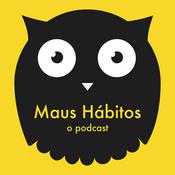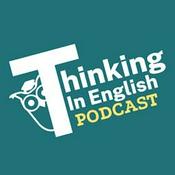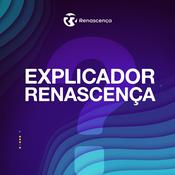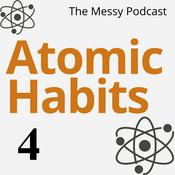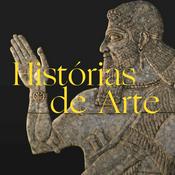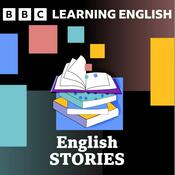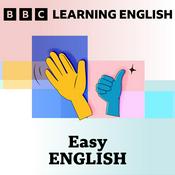97 episódios

When AI Handles the Hard Parts – What Educators Lose Without the Struggle | Ep. 92
09/1/2026 | 59min
In this episode of ChatEDU (When AI Handles the Hard Parts – What Educators Lose Without the Struggle) Matt and Liz start with a look at the new Gemini Live update before jumping into the Rundown. From there, they go Beneath the Surface with a deeper take on AI’s impact on growth and leadership, then close with a Bright Byte on carbon battery storage and the future of clean energy.The Run DownGovernments are stepping in on youth social media, with New York adding mental health labels, Virginia capping use, and Australia banning platforms for kids under sixteen.2025 reset generative AI as adoption stalled and hype faded, shifting the industry toward slower, more durable growthAutonomous agents still have a lot to learn. Claude AI’s takeover of a newsroom vending machine spiraled into chaos, highlighting real-world failure modes.Fear of AI detection is changing how students write, with kids deliberately dumbing down their work, undermining confidence, voice, and authentic learning.Popular AI tools failed key safeguarding tests, raising serious questions about readiness and oversight in schools.A new school procurement guide raises the bar on AI data governance and compliance, signaling a shift from innovation-first to accountability-first adoption.Districts are piloting ChatGPT for IEP paperwork, but transparency is critical to protect trust, oversight, and legal compliance.Beneath the SurfaceAn HBR piece warns that AI shortcuts may erode mastery, empathy, and growth, prompting leaders to rethink how they preserve the human side of work.Google is partnering with Energy Dome to deploy 200-MWh CO₂ battery storage, using compressed carbon dioxide instead of rare minerals to scale clean energy infrastructure.AnnouncementsCelebrate our 100th episode: skills21.org/chatedu100Learning They'll Love - Dr. Elizabeth RaddayASCD: https://tinyurl.com/bde652nn Amazon: https://tinyurl.com/22t9hz77Barnes and Noble: https://tinyurl.com/bdckf6zwThe Winter Micro-Credential starts soon. Join the six-week dive into AI literacy, pedagogy, assessment, and ethics. www.skills21.org/ai/micro EdAdvance is offering a Middle and High School Student AI Literacy course — email [email protected] to bring it to your district. www.skills21.org/ai/learnai Skills21’s FREE social media literacy course? Check it out here - https://www.skills21.org/social-balanceThis episode is sponsored by The National Center for Next Generation Manufacturing. https://www.nextgenmfg.orgLinks3 Must-Try Gemini Live Trickshttps://tinyurl.com/496pke3uNew York Orders Mental Health Labelshttps://www.aljazeera.com/news/2025/12/26/new-york-to-require-social-media-platforms-to-display-mental-health-labelsVirginia Limits Social Media Use for Minorshttps://tinyurl.com/4vy7h92jParents Eye Australia’s Social Media Banhttps://tinyurl.com/4brsc42rThe great AI hype correction of 2025https://tinyurl.com/5acwnx7aLetting AI Run Our Vending Machine Cost Us Hundredshttps://tinyurl.com/yjvf47kdChatGPT May Prioritize Advertisershttps://tinyurl.com/2yw5s869Why AI Policing Makes Kids Write Worsehttps://tinyurl.com/mwkpcn5fAI Chatbots Fail School Safeguarding Testshttps://tinyurl.com/2z8zpbhuK–12 AI Data Checklisthttps://tinyurl.com/yb5b72pxChatGPT to Be Used for Special Education Compliancehttps://tinyurl.com/3zsws26dSchools to Use ChatGPT for Special Ed Compliancehttps://tinyurl.com/3zsws26dTeen Siblings Compete in a 24-Hour Hackathonhttps://tinyurl.com/52hdnrfcAI Is Reshaping Learning at Workhttps://tinyurl.com/2w9wc67k3 Must-Try Gemini Live Tricks After Its Upgradehttps://tinyurl.com/2acs2j2pDarren Coxon’s LinkedIn posthttps://tinyurl.com/53cv5ax4Jill Coleman’s Posthttps://tinyurl.com/2tcpz73fDr. Philippa’s Posthttps://tinyurl.com/k8kj8s2nGoogle Deploys CO₂ Battery Facilitieshttps://tinyurl.com/5n7muvbj

What Breaks + What Sticks – Education's AI Future in 2026 | Ep. 91
02/1/2026 | 58min
In this episode of ChatEDU (What Breaks + What Sticks – Education's AI Future in 2026), Matt and Liz note the shift to video-first shows, run through their 2025 AI and teaching outlook, then close with 2026 predictions and a Bright Byte on turning trash into textiles.The RundownStory #1: NotebookLM Gets Smarter and More StructuredGoogle’s NotebookLM adds Data Tables and a leaked Lecture Mode, moving it from research tool toward an instructional partner.Story #2: ChatGPT Adds Mood ControlsOpenAI’s update lets users fine-tune ChatGPT’s tone and style, enabling new classroom uses while raising concerns about over-customization and dependence.Story #3: Deepfakes in Schools EscalateAn AP report finds explicit deepfakes targeting students are surging, outpacing school responses and raising serious legal, ethical, and emotional risks.Story #4: AI Literacy in ActionValerie Ziegler teaches AI literacy to help students spot misinformation, fact-check content, and detect AI manipulation.Story #5: Social BalanceSkills21’s Social Balance tool helps students reflect on AI and digital habits, encouraging more intentional tech use.Story #6: Beyond the Bot – Gemini’s “Fund My Crazy” Student ChallengeGoogle’s Gemini contest drew 29,000 entries in nine days, with winners showing students moving beyond prompts to real AI problem solving.Story #7: Amazon and Playlab Expand AI AccessAmazon’s $800K investment expands Playlab’s AI education program to nearly 500,000 students, highlighting scalable, equitable AI learning.Story #8: AI for Action CurriculumPlaylab’s “AI for Action” unit teaches students to build real school and community solutions with AI, blending ethics, design thinking, and storytelling.Story #9: The AI-Ready Graduate ProfileISTE and ASCD released a six-part framework defining purposeful, human-led AI skills for graduates, already used in places like Winchester, VA.Beneath the SurfaceMatt and Liz predict durable assessments, classroom vibe coding, AI-driven LMSs, slimmer standards, and increased reliance on human judgment as detection improves.Bright Byte: Chicken Feathers into CashmereEverbloom’s Braid.AI uses machine learning to turn keratin-rich waste like chicken feathers into soft, biodegradable, cashmere-like fibers.Announcements and SponsorLearning They'll Love - Dr. Elizabeth RaddayASCD: https://tinyurl.com/bde652nn - use discount code RADDAY30Amazon: https://tinyurl.com/22t9hz77Barnes and Noble: https://tinyurl.com/bdckf6zwThe Winter Micro-Credential starts soon. Join the six-week dive into AI literacy, pedagogy, assessment, and ethics. www.skills21.org/ai/micro EdAdvance is offering a Middle and High School Student AI Literacy course — email [email protected] to bring it to your district. www.skills21.org/ai/learnai Skills21’s FREE social media literacy course? Check it out here - https://www.skills21.org/social-balanceThis episode is sponsored by The National Center for Next Generation Manufacturing. https://www.nextgenmfg.orgLinksTime to Retire “Podcast”https://tinyurl.com/349cabruOrganize Insights with Data Tableshttps://tinyurl.com/3mas6eskNotebookLM Levels Up Key Featurehttps://tinyurl.com/cvf3j9m7ChatGPT Gets Enthusiasm Dialhttps://tinyurl.com/6eyrykunDeepfake Cyberbullying in Schoolshttps://tinyurl.com/z8cyjmbpTeaching Screenagers Social Media and AIhttps://tinyurl.com/fscuvyrfGemini AI Student Contest Winnershttps://tinyurl.com/377sr4m4Amazon’s $800K Bet on AI Educationhttps://tinyurl.com/uypb6rctPlaylab AI for Action Curriculumhttps://tinyurl.com/4jxwnxz9What “AI-Ready School” Really Meanshttps://tinyurl.com/2s4zpfxeYann LeCun to Aspiring AI Studentshttps://tinyurl.com/ydsnxufSalesforce Reconsiders LLMshttps://tinyurl.com/nbfenrspAI Denialismhttps://tinyurl.com/5yzjv5seAI Used To Turn Feathers into Cashmerehttps://tinyurl.com/y5jmh2wd

Signals in the Noise – The Stories That Kept Popping Up on ChatEDU | Ep. 90
26/12/2025 | 1h 3min
In this episode of ChatEDU (Signals in the Noise – The Stories That Kept Popping Up on ChatEDU), Matt and Liz reflect on 2025’s defining AI themes, invite listener voice memos as ChatEDU nears episode 100, and close with a sharp Bright Byte editorial.RundownSchool AI Flags Clarinet as GunA Florida school locked down after an AI system mistook a student’s clarinet for a rifle. Matt and Liz unpack what happens when AI surveillance gets it wrong.How Students Are Using AI AgentsData from 100M queries shows students use agentic AI for real academic work, not entertainment.Wrong Answers OnlyAnna Mills sparked a playful thread on AI doing your coursework. Liz shares the best replies and five agentic browser–proof ideas.Portfolio Defense and the Rise of Real AssessmentMatt and Liz explore a shift toward student-led defenses, supported by tools like NotebookLM.NotebookLM Chat HistoryThe new chat history feature allows students to track AI conversations across devices.NotebookLM May Soon Work Inside GeminiGoogle may integrate NotebookLM into Gemini, enabling grounded notes in broader chats.AI Literacy for All MajorsLSU’s student government is pushing for a free, noncredit AI certificate open to all students.The One-Chatbot Classroom?Niral Shah challenges “one bot per child,” with Matt and Liz pointing to collaborative AI learning instead.AI Storytelling and Student ProjectsFrom AI storytellers to student-built health apps, Matt and Liz show what meaningful AI learning looks like.Beneath the SurfaceMatt and Liz revisit key stories and themes from 2025, with help from Ethan Mollick and their custom NotebookLM.Bright Byte: AI Hype Distracts Us from Important BreakthroughsFlashy AI grabbed headlines, but Margaret Mitchell points to predictive AI as the real progress. Matt and Liz highlight why it matters.Announcements and SponsorLearning They'll Love - Dr. Elizabeth RaddayASCD: https://tinyurl.com/bde652nn - discount code RADDAY30Amazon: https://tinyurl.com/22t9hz77Barnes and Noble: https://tinyurl.com/bdckf6zwThe Winter Micro-Credential launches in January. Join educators from around the world for a six-week dive into AI literacy, pedagogy, assessment, and ethics. www.skills21.org/ai/micro EdAdvance is offering their Middle and High School Student AI Literacy course — email [email protected] to bring it to your district. www.skills21.org/ai/learnai Interested in Skills21’s FREE social media literacy course? Check it out here - https://www.skills21.org/social-balanceThe National Center for Next Generation Manufacturing is proud to partner with the National Applied Artificial Intelligence Consortium. Join educators at the NAAIC AI Summit:February 19–20, 2026Miami Dade College, Downtown Miamiwww.naaic.aiListener Call-OutAs ChatEDU approaches its 100th episode, Matt and Liz want to hear from you!Send in a short audio message: How has ChatEDU impacted your thinking or work?Email your clip to: [email protected] Saw a Gun. It Was a Clarinet.https://tinyurl.com/pvaxys3jAI Agents: Early Evidence from Perplexityhttps://tinyurl.com/mpd6yrx4Anna Mills: AI Agents Wrong Answershttps://tinyurl.com/mvurrtzk5 AI-Proof Assessment Ideashttps://tinyurl.com/5n7eah2vPhillip Alcock on Notebook LMhttps://tinyurl.com/5xz863u4NotebookLM rolls out chat history, adds AI Ultra tierhttps://tinyurl.com/2t4h8u8aNotebookLM Comes to Geminihttps://tinyurl.com/47pmxa7bLSU Students Push for AI Educationhttps://tinyurl.com/ytaumrmyWhy “One Chatbot per Child” Doesn’t Workhttps://tinyurl.com/366s3fbcStoryteller Is the Hottest New Job Titlehttps://tinyurl.com/3zmt4y6w“AI Slop” Is Merriam-Webster’s 2025 Wordhttps://tinyurl.com/2s3up4ycWrapped Prompthttps://tinyurl.com/2eaxfy57Mollick Year in Reviewhttps://tinyurl.com/yhw7travThe Shape of AIhttps://tinyurl.com/ya2a4j6zAI Hype Hides Real Breakthroughhshttps://tinyurl.com/m36udesr

The College Essay Is Not Dead, AI Just Changed the Rules | Ep. 89
19/12/2025 | 1h 17min
In this episode of ChatEDU (The College Essay Is Not Dead, AI Just Changed the Rules), Matt and Liz open with cold weather updates, Liz’s book selling out on Amazon, and the viral “six-seven” trend. They run through stories on new AI tools, grant challenges, workplace shifts, and prompt design myths, then go deeper with the founder of College Essay Advisors. A Bright Byte from Harvard highlights AI’s promise in rare disease diagnosis.Story 1: Google Mixboard Goes Full Nano BananaGoogle’s experimental Mixboard turns brainstorms into slide decks with Nano Banana Pro. Liz tested it by creating fake but convincing ChatEDU merch, raising questions about marketing, classrooms, and deepfake ethics.Story 2: $400K in the Create+AI ChallengeStanford’s Accelerator for Learning is offering $400,000 for AI projects that augment human potential in education. Matt and Liz outline the tracks and deadlines.Story 3: Claude Becomes the InterviewerAnthropic used its chatbot to interview 1,250 professionals, finding excitement about productivity gains alongside growing anxiety about automation and job security.Story 4: The Lonely AI WorkplaceA follow-up study suggests AI may be replacing people as well as tasks, with chatbots reducing mentorship and collaboration.Story 5: The Role Prompting Myth Gets BustedA Wharton study finds that expert personas do not reliably improve AI accuracy, while clarity and context matter more.Story 6: Arrival Technology and Adaptive LeadershipJustin Reich and Jesse Dukes describe generative AI as an arrival technology that is user driven and disruptive in classrooms.Beneath the SurfaceLiz talks with College Essay Advisors founder Stacey Brook about what matters in college essays in the age of AI. Drawing on two decades of experience, Stacey explains why personal essays still matter and how AI can support brainstorming and confidence without replacing a student’s voice.Bright Byte: AI Helps Diagnose Rare DiseaseHarvard researchers have introduced POPEVE, an AI model that helped diagnose 30 percent of previously unsolved rare disease cases in a large patient study. By combining evolutionary data and protein modeling, it reduces ancestry bias and offers new hope in genetic medicine.SponsorThis episode is supported by the National Center for Next Generation Manufacturing.www.nextgenmfg.orgAnnouncementsLiz is back from the fall tour. RADDAY30 still works at ASCD for a discount on her book.Follow Liz and Matt on LinkedIn and check out ChatEDU clips on TikTok, YouTube, and LinkedIn.The Winter Micro-Credential cohort launches this January. Join educators from around the world for a six-week dive into AI literacy, pedagogy, assessment, and ethics.EdAdvance is now offering a Middle and High School Student AI Literacy course — email [email protected] to bring it to your district.Interested in Skills21’s free social media literacy course? Check it out here - https://www.skills21.org/social-balanceLinksIn-N-Out Removes “67” After Viral Ordering Trendhttps://tinyurl.com/2hv3pbvzGoogle Mixboard Nano Banana Turns Rough Ideas Into Presentationshttps://tinyurl.com/2du8h47rCreate+AI Challengehttps://tinyurl.com/49yw3cctWhat 1,250 Professionals Say About Working With AIhttps://tinyurl.com/4faxetcvAI is making the workplace lonelierhttps://tinyurl.com/3x4d32ntPrompting Science Report 4: Expert Personas Don’t Improve Accuracyhttps://tinyurl.com/2uf44yprEdTech After ChatGPThttps://tinyurl.com/mvm9fy6mPurdue Requires AI for All Undergradshttps://tinyurl.com/yk3zf9yrNew AI Model Speeds Rare Disease Diagnosishttps://tinyurl.com/axhnyy2jAdaptive Leadership on AI and Academic Integrityhttps://tinyurl.com/etjth9xmGem Custom Instructions + use the “listen’ feature and whisper flowhttps://tinyurl.com/42jcfwrd

Beyond the Vision: Building a Policy Infrastructure to Meet the AI Moment | Ep. 88
12/12/2025 | 1h 4min
In this episode of ChatEDU (Beyond the Vision: Building a Policy Infrastructure to Meet the AI Moment), Matt and Jonathan demo ChatGPT’s new voice mode, dig into AI labor-market news, tackle school chatbot safety, outline a four-point AI policy plan, and share a geothermal bright byte.Story #1: The Iceberg Index and the Clickbait ProblemA new MIT study maps AI’s impact across 151M workers and 32K skills, but headlines distort the findings. Matt and Jonathan unpack what the research really shows, why the hype misleads, and what Microsoft’s agentic AI struggles and Google’s hard-drive wipe say about how far autonomous agents still have to go.Story #2: Will My Job Survive AI? I Asked Gemini and ChatGPTMatt uploads his job context to ChatGPT and Gemini to see how each predicts his future. ChatGPT delivers sharp, personalized coaching, while Gemini stays vague under stricter privacy rules. Jonathan argues that “evolving, weird” jobs may actually be the safest and that both tools can drive real insight when used strategically.Story #3: AI Chatbots in Schools: A Practical Guide to Safety, Liability, and Mandated ReportingA new EDSAFE AI Alliance guide asks whether school chatbots should act as mandated reporters. As tools like Character.ai and MagicSchool spur more student disclosures, the guide lays out a four-part framework to flag, notify, assess, and act. Matt and Jonathan break it down and argue that child-protection protocols must extend into virtual spaces.Beneath the Surface: Jonathan’s Four Policy Shifts to Meet the MomentJonathan highlights four policy shifts for Connecticut:1. A Shared Vision of the Graduate: Replace 169 local skill frameworks with one statewide model.2. Lean Out the Curriculum: Use AI to refocus on power standards and durable skills.3. Accountability Beyond the Basics: Measure the competencies that matter in an AI-driven world, not just literacy and math.4. Policy Alignment with Practice: Bring state and local policies in reporting, AI-use rubrics, and more into sync with these instructional shifts.Matt says this may be the most consequential chapter of Jonathan’s career and possibly for education as a whole.Bright Byte: AI Uncovers Hidden Geothermal EnergyZanskar Geothermal used AI modeling to uncover a viable energy system in western Nevada, a site long thought tapped out. It’s the first breakthrough in 30 years and a clear reminder of AI’s power to tackle tough environmental challenges when used well.Links and ReferencesChatGPT’s voice mode no longer separate interfacehttps://tinyurl.com/4m3dtmcu‘6-7’ viral phrase may have a meaninghttps://tinyurl.com/4m3dtmcuMeasuring Skills-Centered Exposure in AI Economyhttps://tinyurl.com/2w8p6es7AI Agents Disasterhttps://tinyurl.com/2s3u3tb5Google’s AI Deletes User’s Hard Drivehttps://tinyurl.com/3n284ehtAI on Jobs in Five Yearshttps://tinyurl.com/42vtyvusAI Chatbots in Schoolshttps://tinyurl.com/yvntwfr6Professors using AI in course designhttps://tinyurl.com/yevrmbetDropout Hired at OpenAI After Learning PhD-Level AI with ChatGPThttps://tinyurl.com/ym7tt62tPoll: Americans Doubt Degree Valuehttps://tinyurl.com/3cvccufrNewCollege Major: A.I.https://tinyurl.com/35d32zhuGeothermal company makes big discovery using AIhttps://tinyurl.com/3fenuej7AnnouncementsThe Winter Micro-Credential cohort launches this January. Join educators from around the world for a six-week dive into AI literacy, pedagogy, assessment, and ethics.EdAdvance is now offering a Middle and High School Student AI Literacy course — email [email protected] to bring it to your district.Interested in Skills21’s free social media literacy course? Check it out here - https://www.skills21.org/social-balance SponsorThis episode is brought to you by the National Center for Next Generation Manufacturing, helping educators and students build workforce-ready skills through innovation. Learn more at nextgenmfg.org.
Mais podcasts de Ensino
Podcasts em tendência em Ensino
Sobre ChatEDU – The AI & Education Podcast
Ouve ChatEDU – The AI & Education Podcast, Coach Talks e muitos outros podcasts de todo o mundo com a aplicação radio.pt
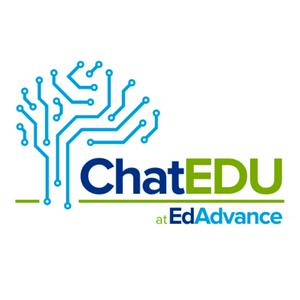
Obtenha a aplicação gratuita radio.pt
- Guardar rádios e podcasts favoritos
- Transmissão via Wi-Fi ou Bluetooth
- Carplay & Android Audo compatìvel
- E ainda mais funções
Obtenha a aplicação gratuita radio.pt
- Guardar rádios e podcasts favoritos
- Transmissão via Wi-Fi ou Bluetooth
- Carplay & Android Audo compatìvel
- E ainda mais funções


ChatEDU – The AI & Education Podcast
descarregue a aplicação,
ouça.







